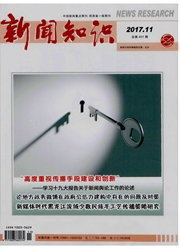

 中文摘要:
中文摘要:
长期暴露在噪声下人员健康将受到影响。为了研究门禁装置警报声音频率大小及不同时段不同警报声对相关人员的影响,通过对学生宿舍门禁报警声音频率6等份进行选取出6个不同频率,分别为144,299,621,1 289,2 675与5 553 Hz,利用闪光频率融合实验装置,在保证警报声音强度相同的条件下对10名被试人员开展10组实验;利用反应时测试仪测试3个时间段、4类警报声对人的影响。研究表明,在其他相同条件下,一定范围的不同声音频率对被试闪点融合频率的影响程度不明显,在门禁报警系统的声音设计中,可以较少考虑提示音频率因素;不同时段不同警报声对人的影响具有差异性,早上人更倾向于舒缓的音乐,中午人更倾向于欢快的提示音,晚上人更倾向于安静柔和的提示音。本实验研究对于门禁警报声音的设计优化具有现实意义和理论意义。
 英文摘要:
英文摘要:
Long-time exposure to noise will do harm to human health. In order to analyze the effect of college dormitory access control alarm devices' sound frequency and different types of alarm in different periods,the experiments of 10 groups withl0 quizzes by the devices based on the same sound intensity was carried out in different frequency by 6 equal parts,that was 144,299,621,1 289,2 675 and 5 553 Hz. Also reaction-time test instrument was used to test the effect of 4 types of alarm in 3 different periods. It shows that certain scope of different sound frequency has little effect on the test, so sound frequency factor could be ignored. Periods and types of alarm sound show different effect. In the morning people prefer soothing music, while bright sound in the midday, impassive and gentle sound in the evening. This experiment research has practical significance and theoretical significance in design optimization of access control alarm sound.
 同期刊论文项目
同期刊论文项目
 同项目期刊论文
同项目期刊论文
 期刊信息
期刊信息
